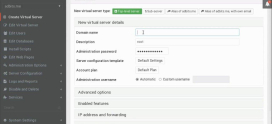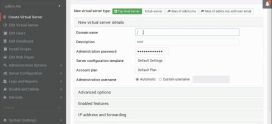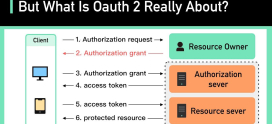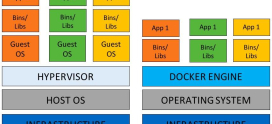
The Role of Content Delivery Networks (CDNs) in High-Traffic E-commerce Hosting
Have you ever clicked on an online store, only to be greeted with a frozen screen that leaves you staring at a spinning wheel? It’s frustrating, right? You’re not alone; we’ve all been there. Whether you’re a shopper looking for that perfect pair of shoes or a business owner trying to attract customers, performance can make or break your online experience. This is where Content Delivery Networks (CDNs) step in, acting like the superheroes of the internet world! A CDN can turn a sluggish site into a speedy store, ensuring customers don’t abandon their carts out of frustration.
In the buzzing realm of e-commerce, every second counts. Slow loading times can lead to lost sales, unhappy customers, and a tarnished reputation. But how do we tackle this challenge? By leveraging the power of CDNs, we unlock a world of benefits designed to enhance our online business experience. So, grab a cup of coffee and settle in; we’re about to explore the fascinating role of CDNs in high-traffic e-commerce hosting and how they can elevate your online store to new heights!
What is a Content Delivery Network (CDN)?
At its core, a Content Delivery Network is a network of servers distributed across various locations around the globe. Think of it as a team of delivery drivers spread out over a large city, each one ready to deliver packages right from the nearest location. Similarly, CDNs store cached copies of your website content in data centers close to your users. This setup ensures that when someone visits your site, they receive the data from the nearest server, significantly reducing loading times.
Why Are CDNs Essential for E-commerce Websites?
Imagine running a busy shop during the holiday season. Customers are flooding in, the line at the register is getting longer, but your staff can’t keep up with the demand. This scenario is analogous to an e-commerce website during peak traffic hours. Without a robust infrastructure like a CDN, this frenzy can lead to slow response times, site crashes, or even downtime.
Here are a few reasons why CDNs are essential for e-commerce:
- Faster Load Times: Since CDNs deliver content from the closest server, customers experience minimal latency.
- Scalability: CDNs handle increased traffic smoothly, preventing site crashes during busy seasons.
- Improved User Experience: A fast site keeps users engaged and less likely to abandon their cart.
- Enhanced Security: CDNs can absorb DDoS attacks and protect sensitive transactions.
How CDNs Work: A Closer Look
Understanding the technology behind CDNs isn’t just for techies; it’s vital for anyone looking to optimize their e-commerce site. Here’s how they typically work:
1. Distributed Network
CDNs have multiple servers located across various geographical locations. This distribution ensures that a site’s content is replicated and stored closer to its users, reducing the distance data needs to travel.
2. Caching Content
When you update your site, CDNs do the heavy lifting by caching content, such as images, videos, and code. This stored content is served to users, resulting in faster loading times.
3. Dynamic Content Handling
While static content is easy to cache, dynamic content (think personalized shopping experiences) requires more attention. CDNs can serve this content efficiently by dynamically generating it closer to the users.
4. Automatic Failover
If one server goes down, CDNs automatically reroute traffic to another operational server. This ensures your website remains up and running, even during high traffic or server issues.
Key Features of CDNs for E-commerce
Let’s explore some standout features of CDNs that can benefit your e-commerce business:
1. Enhanced Security Measures
Many CDNs provide built-in security features, including DDoS protection, Web Application Firewalls (WAF), and SSL/TLS encryption. These features safeguard your site against malicious attacks, ensuring safe transactions for your customers.
2. Global Reach
With servers strategically located worldwide, a CDN ensures that your content is always close to your global audience. This global reach is particularly beneficial for businesses aiming to break into international markets.
3. Analytics and Insights
Most CDNs come with analytic tools that monitor user behavior and traffic patterns. By analyzing this data, e-commerce owners can make informed decisions about marketing strategies and inventory management.
Choosing the Right CDN for Your E-commerce Site
With several CDN options available, it’s essential to pick the one best suited for your needs. Here are some factors to consider:
1. Performance
Look for a CDN with a proven track record. Reading user reviews and analyzing speed tests can help gauge performance outcomes.
2. Cost
Budget considerations are key. Determine which features are essential for your business and compare pricing plans from multiple providers.
3. Customer Support
In the world of e-commerce, problems can arise at any moment. A CDN provider with reliable customer support can help resolve issues swiftly, preventing losses.
Case Study: DarazHost as an E-Commerce Solution
DarazHost has revolutionized e-commerce hosting with its powerful CDN offering. Known for its speed and reliability, DarazHost provides:
- Seamless integration: Easy setup and configuration.
- Robust security measures: Protecting client data using advanced security protocols.
- 24/7 support: Their customer support team is always ready to assist.
Many businesses have reported increased sales after integrating DarazHost’s CDN, attributing improved site speeds and enhanced customer satisfaction as crucial factors.
Common CDN Misconceptions
As with any technology, myths and misconceptions abound. Here’s a look at some common misunderstandings about CDNs:
1. CDNs Are Only for Large Enterprises
While large businesses benefit from CDNs, smaller e-commerce stores can also gain vastly from improved speeds and security.
2. Implementing a CDN Is Complicated
Setting up a CDN may seem daunting, but most providers offer simplified processes and support to help you get started.
3. CDNs Are Just About Speed
Speed is a significant factor, but CDNs also enhance security, scalability, and overall performance.
Conclusion
In today’s fast-paced online shopping environment, harnessing the power of CDNs is no longer optional—it’s essential. As we’ve discussed, CDNs offer numerous benefits, from speeding up load times to improving security, which can dramatically enhance your e-commerce site. Whether you’re a small startup or a large retail giant, the right CDN can propel your business forward.
So, are you ready to enhance your online presence and ensure your customers have the best shopping experience possible? If you haven’t explored CDN options, now is the time. Give your e-commerce platform the boost it deserves!
FAQs
What is a CDN and how does it work?
A CDN is a network of servers located across various locations designed to deliver content to users quickly and efficiently by caching it closer to their geographic location.
How does a CDN improve website speed?
By caching content at servers closer to users, CDNs reduce the distance data travels, resulting in faster load times and an overall smoother browsing experience.
Do I need a CDN for my small e-commerce store?
Absolutely! CDNs offer scalability and performance improvements, which can benefit any size of e-commerce store.
What features should I look for in a CDN?
Look for performance, security features, cost-effectiveness, and good customer support when choosing a CDN for your e-commerce site.
Can a CDN help with website security?
Yes! Many CDNs offer built-in security measures, such as DDoS protection, Web Application Firewalls (WAF), and SSL/TLS encryption, safeguarding your website from various online threats.
How much should I expect to spend on a CDN?
The cost of a CDN can vary widely based on the provider and the features offered. It’s essential to compare different providers and find a plan that fits your budget while meeting your needs.









